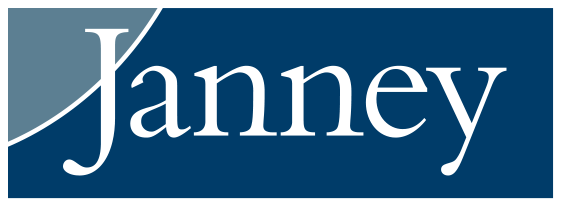Reduce Your Risks
Sign up for the FTC’s Do Not Call Registry. While it won’t block every robo-call, the Federal Trade Commission’s National Do Not Call Registry will screen out many telemarketing calls, including some from less-than-savory operations.
Secure your personal/account information and passwords. Don’t leave your password list lying around near your computer or in your wallet—and don’t label it "Passwords". (Janney makes it easy to keep track of all your important documents and information in our online Document Vault.
Think Before You Act
Hold off acting on “urgent” messages. Fraudsters count on that moment when your gut kicks in and your head temporarily checks out. Before you respond to a pop-up alert, call, or email demanding you act immediately, take a breath first. And don’t click on anything. Common fake-urgent alerts include:
- A call from a “grandchild” asking you to send money to help with a dire situation—for example, a medical emergency, arrest, or kidnapping.
- A call or email from “the IRS” saying you committed tax fraud and face arrest if you don’t respond immediately.
- The CEO, CFO, or senior financial leader at your company needs your help updating a direct-deposit account number immediately.
- A call, email, or pop-up message from a hardware or software company you know—Microsoft for example— claiming you need technical support
Verify, then trust. Rather than click on a link or call a phone number in a pop-up message, email, or letter, use the contact information you see on your regular account statement or the back of your credit card. Or call your Financial Advisor for help
Treat your Social Security Number like a state secret. Share this number only with the people and institutions you trust the most. Never give this number out over the phone unless you’re absolutely confident about who’s on the other side of the connection.
Use Smart Web Strategies
Check the website address bar. Confirm the website you’re visiting is legitimate (for example, IRS.gov, not IRS.com) and secure (look for the lock in the address bar).
Turn on multi-factor authentication. Secure your online accounts by turning on multi-factor authentication, which adds an extra layer of security.
Practice password prudence. Have a strong password that combines upper-and-lower-case letters, numbers, and symbols. Avoid using the most popular password: 123456. And don't use the same password for multiple sites.
Working With Janney
Depending on your financial needs and personal preferences, you may opt to engage in a brokerage relationship, an advisory relationship or a combination of both. Each time you open an account, we will make recommendations on which type of relationship is in your best interest based on the information you provide when you complete or update your client profile.
When you engage in an advisory relationship, you will pay an asset-based fee which encompasses, among other things, a defined investment strategy, ongoing monitoring, and performance reporting. Your Financial Advisor will serve in a fiduciary capacity for your advisory accounts.
For more information about Janney, please see Janney’s Relationship Summary (Form CRS) on www.janney.com/crs which details all material facts about the scope and terms of our relationship with you and any potential conflicts of interest.
Get the benefit of convenient, timely access to your accounts with Janney Online Access.
Checking your portfolio and financial plan progress is easy when you use Online Access. Transfer funds, store documents including wills and power-of-attorney permissions in a central Document Vault, and manage your eDelivery notice preferences.
Related Articles
-
Data & Cybersecurity
Look Out For These Top Tax Scams When Filing Your Taxes
Each year, the IRS produces a list of its “Dirty Dozen” tax scams. These scams tend to spike from... -
Cash & Borrowing
Here’s What You Can Do to Prevent Check Fraud
Instances of check fraud are on the rise in the U.S. Below are some best practices to help you av... -
Asset Protection
Account Protection at Janney
Through every market condition, through every stage of your life—and your family’s life—Janney pr...

